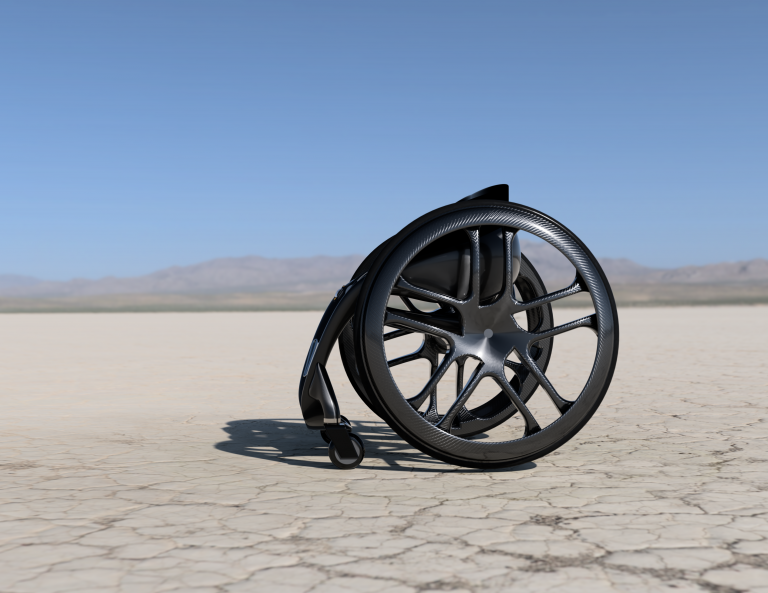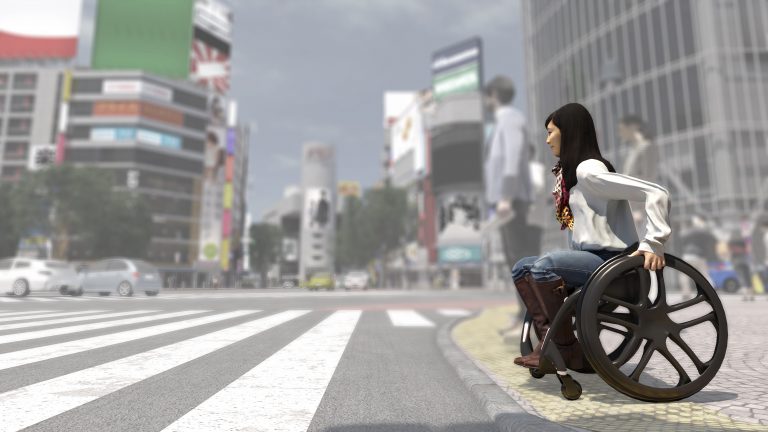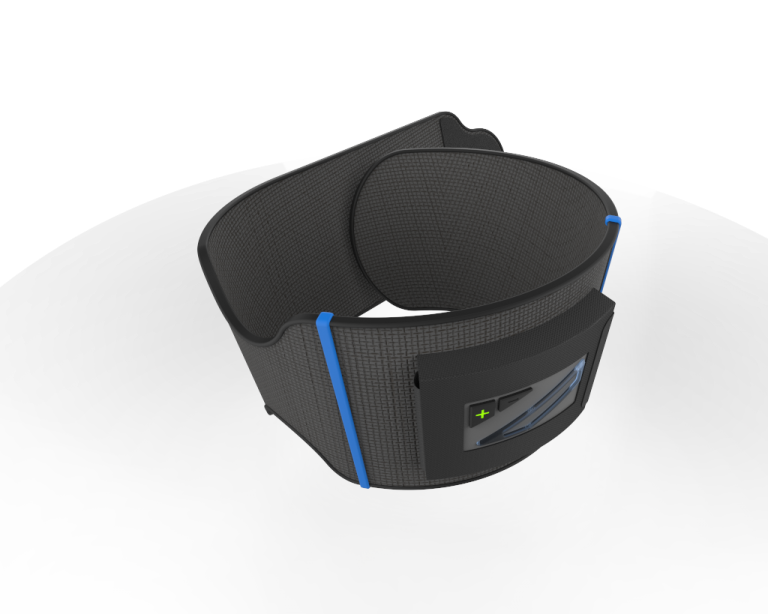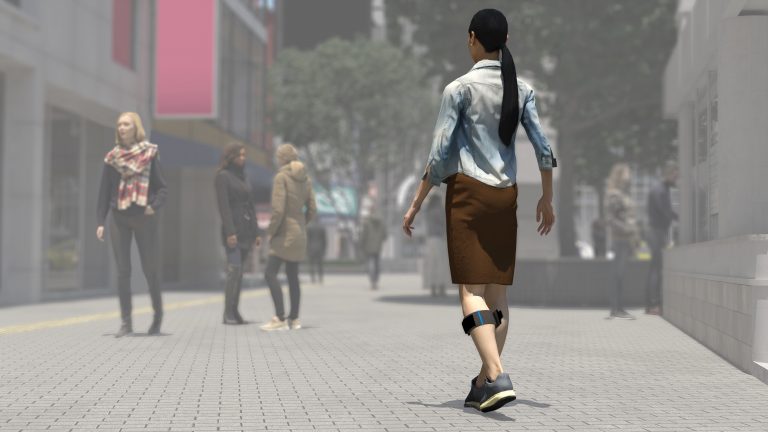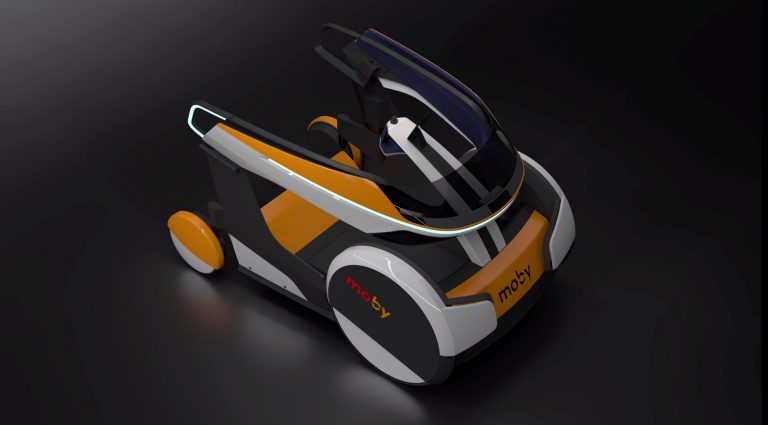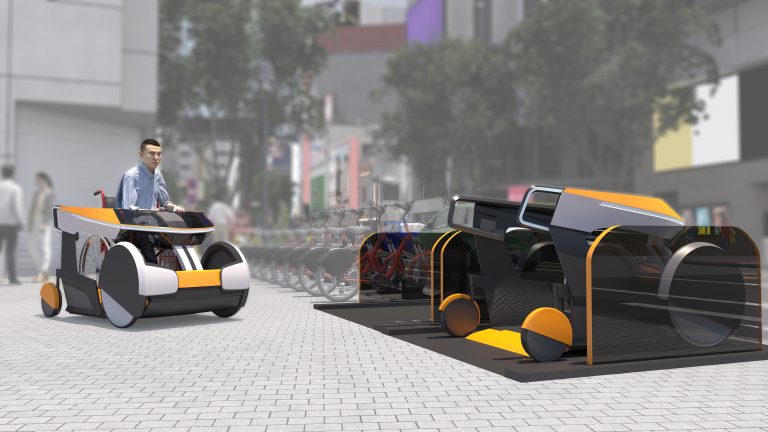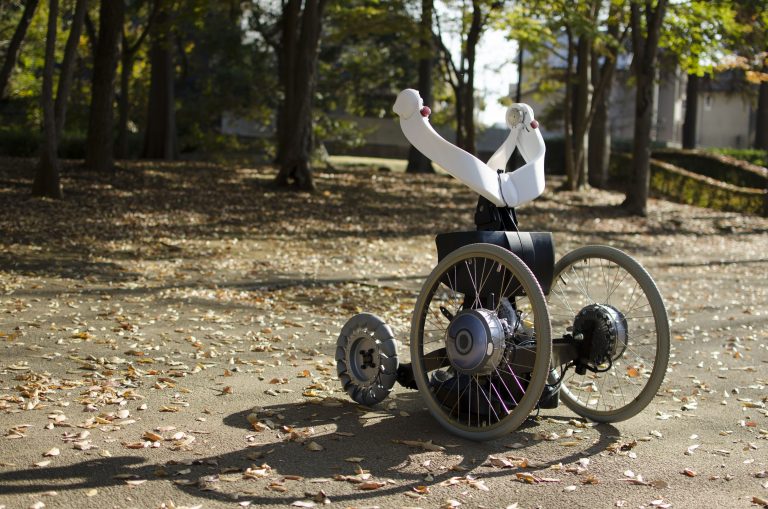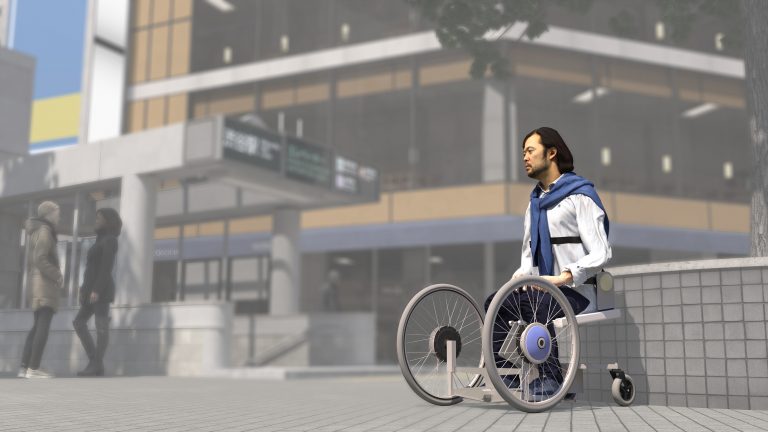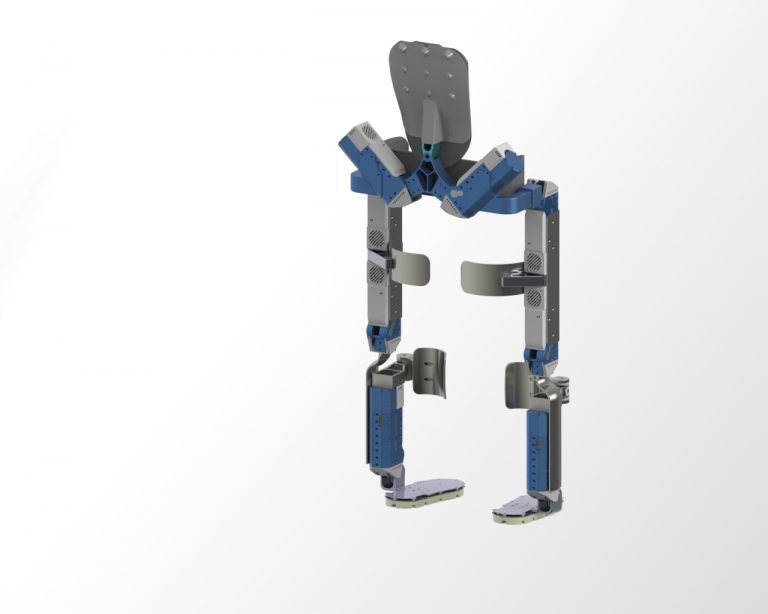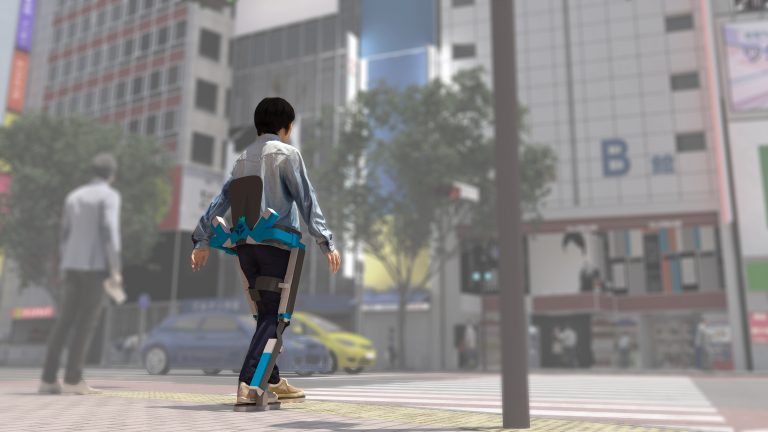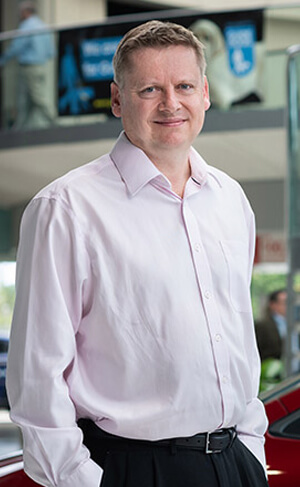Toyota Unveils Five Visions for the Future of Mobility at CES
- Toyota Mobility Foundation, in partnership with Nesta’s Challenge Prize Centre, announces finalists in $4 million global Mobility Unlimited Challenge, at CES in Las Vegas
- Innovators from around the world submitted game-changing technologies to improve the lives of people with lower limb paralysis
- Finalists include teams from the United Kingdom, United States, Japan and Italy, with devices ranging from a hybrid exoskeleton on wheels, to a powered wheelchair share scheme
- Each finalist receives a $500,000 grant to develop their idea, with the final winner receiving $1 million
The five finalists in the three-year Mobility Unlimited Challenge have been announced at CES, the Consumer Electronics Show, in Las Vegas. The Toyota Mobility Foundation launched the $4 million global challenge in 2017 in partnership with Nesta’s Challenge Prize Centre.
Around the world, millions of people are living with lower-limb paralysis, most commonly as a result of strokes, spinal cord injury and multiple sclerosis. The World Health Organisation estimates there are between a quarter and half a million new cases of spinal cord injury, globally every year.
The Challenge invited engineers, innovators and designers from across the world to submit designs for game-changing technologies to improve the mobility and independence of people with lower-limb paralysis. Central to the Challenge is the importance of working with end-users to develop devices which will integrate seamlessly into their lives and environments, while being comfortable and easy to use.
Each of the five finalists will receive a grant of $500,000 to develop their concept further. They will attend workshops, receive mentoring opportunities with engineering experts and collaborate with equipment users to help develop their concepts. The ultimate winner will be announced in Tokyo in 2020 and will receive $1 million.
The five finalists are: –
Phoenix Ai Ultralight Wheelchair, Phoenix Instinct (United Kingdom): an ultra-lightweight, self-balancing, intelligent wheelchair which eliminates painful vibrations. Using smart sensors, the chair will configure itself to what the user is doing so it remains in sync with how the user moves. It will have many smart functions never before seen in wheelchairs, for example intelligent, lightweight power assist to help make slopes easier to ascend.
The Evowalk, Evolution Devices (United States): a non-intrusive sleeve which goes around the user’s leg and has sensors that track walking motion and stimulate the right muscles at the right time to improve mobility. This personalised, timed muscle stimulation will also rehabilitate muscles over time.
Moby, Italdesign (Italy): the first mobility service created for wheelchair users, operating like a cycle share scheme in urban hubs. Offering a series of wheel-on electric devices, it will make travelling around cities much simpler and easier for people with lightweight manual wheelchairs. The service is accessible via an app-based share scheme.
Qolo (Quality of Life with Locomotion), Team Qolo, University of Tsukuba, Japan: this is a mobile exoskeleton on wheels which helps users to sit or stand with ease, effectively removing the ‘chair’ from ‘wheelchair’. Mobility is controlled using the upper body, allowing hands-free operation. The device enables users to travel around in a standing position, changing both physiological and social aspects of everyday living.
Quix, IHMC & MYOLYN (United States): a highly mobile, powered exoskeleton offering fast, stable and agile upright mobility, Quix uses modular actuation, perception technology from autonomous vehicles and control algorithms for balancing autonomous humanoid robots to deliver the mobility, safety and independence that current exoskeletons cannot provide.
A total of 80 entries were received from 28 countries and the finalists were chosen by a panel of expert judges including, from the UK, Sophie Morgan, television presenter and disability advocate, and Ruth Peachment, Occupational Therapy Clinical Specialist at the National Spinal Injuries Centre.
Dr. Eric Krotkov, Chief Science Officer at the Toyota Research Institute and one of the Challenge judges, said: “There are so many technological opportunities to explore approaches to alleviate challenges stemming from lower-limb paralysis. A competition like the Mobility Unlimited Challenge gets innovators to focus on the same problem to identify something of great common interest that serves society. I am excited by these finalists who have a breadth of technical approaches – wheelchairs, orthotics, braces and exoskeletons. I look forward to seeing how they will take these devices out of their conceptual stage to help our end users.”
Ryan Klem, Director of Programs for the Toyota Mobility Foundation commented: “These five finalists have shown real innovation driven by human-centred design. We think that the technology incorporated in these devices could change the lives of a huge number of people around the world, not just for those with lower-limb paralysis, but also those with a wider range of mobility needs. It will be fascinating to follow the teams’ journeys and see how the $500,000 grant will help them develop their ideas to bring them to market and into the hands of users.”
To ensure entries from organisations of all sizes, the Challenge also offered ten teams seed funding in the form of $50,000 Discovery Award grants during the entry period. Of the ten Discovery Award winners, four went on to be selected as finalists.
Charlotte Macken of Nesta’s Challenge Prize Centre said: “Current personal mobility devices are often unable to fully meet the needs of users due to limitations affecting functionality and usability. Historically, the pace of innovation is slow, due to small and fragmented markets and difficulties in getting new technology funded by health-care systems and insurers. This can make the field unattractive to the very people who could help change the world. We hope that challenges like this can inspire innovation and are excited to see how the five finalists use this opportunity to develop their ideas further.”
ENDS
Note to editors
All of the finalist are available for interview. Judges are also available for a limited number of opportunities, so please contact the following to book a possible time slot.
| London | Sarah-Jane Rumford or
James Ward |
+44 (0)7810 434 636
+44 (0)7913 433 255
+44 (0) 0203 740 5325 |
sj@89up.org
|
Current available images are here. We will be adding to this with 3D images of each of the devices in a futuristic Tokyo setting, being created by illustrator Simon McKeown for the announcement on 7th.
Recent global polling:
As well as encouraging collaboration with end-users, the Toyota Mobility Foundation commissioned polling to help Challenge entrants understand the needs of wheelchair users. The research, carried out by ComRes, polled wheelchair users in five countries around the world (UK, US, Japan, India and Brazil) and found:
- 89% of wheelchair users say they have experienced pain and discomfort as a result of their mobility devices
- 45% say they experience back pain at least once a day
- 31% say they experience shoulder pain at least once a day
- 29% say they experience neck pain at least once a day
- 29% say they experience repetitive strain injury (RSI)
- 22% say they constantly experience back pain
- 22% say they experience pressure sores
- 89% of wheelchair users said they had experienced negative consequences as a result of using a wheelchair or mobility device when working or job hunting
- 29% said they felt their talent had been wasted
- 28% said they felt they had been held back in their career
Methodology: ComRes surveyed 575 wheelchair users* online in the UK, US, India, Brazil and Japan between 9th and 26th March 2018. ComRes is a member of the British Polling Council and abides by its rules. Results can be found on the ComRes website.
*Currently using a wheelchair/mobility device or have used one in the last 5 years for at least 6 months.
About the Mobility Unlimited Challenge Prize
The Challenge prize is a tried and tested method for supporting innovation. It offers a reward to whoever can first or most effectively meet a defined challenge. Challenge prizes are effective tools for:
- Spurring and supporting innovative solutions
- Overcoming market failure
- Widening the pool of innovators, prompting collaboration
- Creating new markets
- Raising awareness
About Toyota Mobility Foundation
- The Toyota Mobility Foundation was established in 2014 to support the development of a more mobile society.
- The Foundation aims to support strong mobility systems while eliminating disparities in mobility.
- It utilises Toyota’s expertise in technology, safety, and the environment, working in partnership with universities, government, non-profit organisations, research institutions and other organisations to address mobility issues around the world.
- Programmes include resolving transportation problems, expanding the use of personal mobility and developing solutions for next generation mobility.
Learn more at www.toyotamobilityfoundation.org.
About Nesta’s Challenge Prize Centre
Across the world, there are many people and communities that are overlooked and underserved, facing ever more complex challenges. Nesta’s Challenge Prize Centre tackles some of these problems by harnessing and fostering innovation, fresh thinking and technology to achieve positive impact.
From health to conservation, finance to agriculture, assistive technology to education, we connect people, businesses and experts to drive fresh thinking and deliver systemic change.
The Challenge Prize Centre uses prizes to stimulate innovative solutions to some of the biggest challenges we face, including:
- The Longitude Prize, created to tackle growing levels of antimicrobial resistance and reduce the use of antibiotics.
- The Inclusive Technology Prize, a challenge prize to encourage innovations that gives disabled people equal access to life’s opportunities.
- The UNDP’s Renewable Energy Challenge Prize, to find a renewable energy solution capable of providing off-grid power to cover the needs of war-returnee families in rural Bosnia and Herzegovina.
- The Dynamic Demand Challenge Prize, created to reduce carbon emissions by shifting energy demand to off peak times or through excess renewable generation.
To find out more visit http://challengeprizecentre.org/

